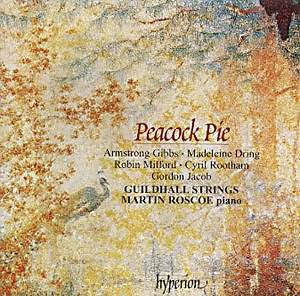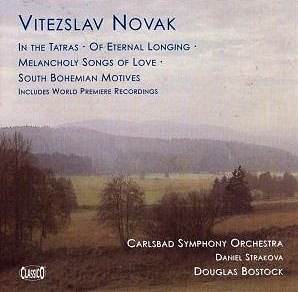 Composer: Felix Mendelssohn (1809-47), Frédéric Chopin (1810-49)
Composer: Felix Mendelssohn (1809-47), Frédéric Chopin (1810-49)
Works: Songs without Words Op. 19 No. 1 in E, Op. 102 No.3 in C, Op. 38 No.6 in A flat; ‘Duetto’ Op. 67 No.4 in C; ‘Spinning Song’ Caprice Op.33 No.1 in A minor; Variations sérieuses Op.54 in D minor; Nocturne Op.32 No.1 in B; Barcarolle Op.60 in F sharp; Berceuse Op.57 in D flat; Polonaise-Fantasie Op.61 in A flat
Performers: Alicia de Larrocha (piano)
Recording: Recorded at the American Academy of Arts and Letters, New York, December 5–6, 1995 (Mendelssohn), August 3-4, 1997 (Chopin)
Label: RCA RED SEAL 09026 68959 2
Alicia de Larrocha’s latest release presents a thoughtfully curated selection of works by Mendelssohn and Chopin, two composers whose lives overlapped in the early Romantic period. Mendelssohn, known for his lyrical and often buoyant melodies, offers a contrasting palette to Chopin’s introspective and highly emotive language. This recording captures the essence of both composers, yet the execution falls short of revealing the full spectrum of their musical genius.
De Larrocha’s interpretation of Mendelssohn’s Songs without Words demonstrates her characteristic clarity and poetic touch, particularly in the opening E major piece. The wistful melodies, so often imbued with a sense of longing, are rendered with grace, although one cannot help but notice a lack of the vibrant spontaneity that other pianists, such as Murray Perahia, have brought to these works. Perahia’s recordings showcase a more adventurous spirit and a fluidity that seems to breathe life into the music, qualities that are somewhat muted in de Larrocha’s approach. Her rendition of the ‘Spinning Song’ reveals a technique that, while competent, lacks the necessary bravura and daring that the piece demands, leading to a performance that feels overly cautious.
The Variations sérieuses, with its nod to Bach, benefits from de Larrocha’s stately interpretation, yet even here, a broader tonal palette—so expertly wielded by Perahia—reveals a depth that remains just out of reach in this recording. The vigorous demands of the third variation, marked ‘piu animato’, are met with precision but not the exuberance one might hope for. Her slower, introspective sections are indeed enjoyable, yet they leave one yearning for a more dynamic contrast that could elevate the overall experience.
Transitioning to the Chopin selections, de Larrocha’s performance of the Barcarolle serves as a poignant reminder of the challenges inherent in interpreting Chopin’s late works. Where other pianists, like Dinu Lipatti or Krystian Zimerman, expose the tempestuous and multifaceted nature of this masterpiece, de Larrocha’s interpretation seems more restrained, lacking the dramatic contrasts that underpin Chopin’s vision. The limpid beauty of her Berceuse is one of the highlights, showcasing her ability to maintain a steady pulse without excessive rubato, yet one longs for a deeper exploration of the emotional terrain that this piece offers.
The Nocturne Op. 32 No. 1 is executed with a sense of safety that feels somewhat uninspired, while her Polonaise-Fantasie struggles to fulfill its titular promise of fantasy. In contrast, Maurizio Pollini’s interpretations bring forth a different world, with a compelling emotional depth that de Larrocha’s performance lacks.
Despite the evident artistry of Alicia de Larrocha, this recording ultimately feels like a missed opportunity to illuminate the full richness of Mendelssohn and Chopin. While the engineering quality is commendable, with a clear and well-defined sound, the performances do not quite deliver the fresh insights that one hopes for from a seasoned artist in such well-trodden repertoire. Fans of de Larrocha may find pleasures here, but those seeking a profound engagement with these beloved works will likely find more reward in the recordings of her contemporaries.



